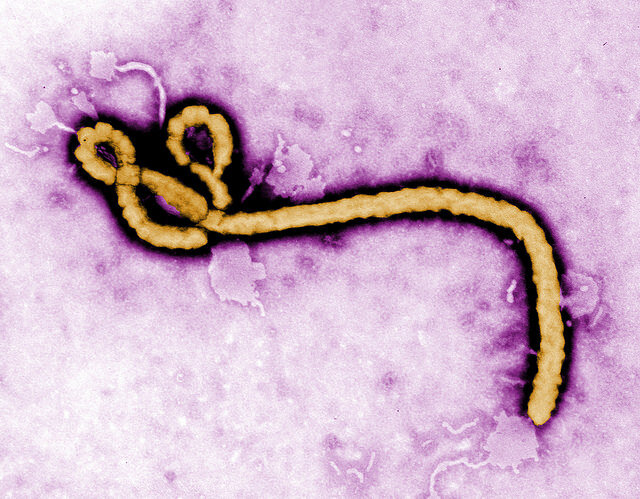Ebola in Context: Lessons Learned from the Ebola Crisis
Image: “Ebola Virus” by CDC Microbiologist Frederick A. Murphy / CC 2.0
The Ebola outbreak in West Africa shared similarities with many previous outbreaks. The paradigm to address it has been predictable, but what made this outbreak fundamentally different is how it rocked the foundations of global health governance on many levels including World Health Organizations, national governments and non-governmental organizations.
The Dalla Lana School of Public Health recently hosted a conversation with some of Canada’s most influential Global Health leaders, Dr. James Orbinski, Dr. Ross Upshur, and Dr. David Fisman. The speakers focused on discussing the lessons learned from this epidemic. The following three lessons were the key points discussed by the panelists.
Lesson #1: The established paradigm around emerging infectious diseases works well, but we need more attention paid towards human perceptions, attitudes, and behaviours.
In today’s globalized world, with the increasing mobility of people all over the world , the threat of a pandemic is greater than ever. Dr. Fisman explained that the paradigm of understanding human and animal interaction as a front for emerging infections has been accurate. What have been missing in disease impact models are human perceptions, attitudes, and behaviours. In the Ebola outbreak we observed how emotions such as fear and trust can become variable themselves in the response to public health interventions. Dr. Orbinski mentioned, “How one approaches the minimization of fear is deeply central in containing, controlling, mitigating, and adapting to an epidemic like Ebola.” Mistrust of governments, charity organizations, and pharmaceuticals were commonplace in this outbreak and it is essential to understand the context of this mistrust in order to respond appropriately.
Lesson #2: The need for a re-conception of global health and patching up global governance.
The failure of multiple systems in the Ebola outbreak points at the “massive holes” in global governance. The panel pointed to the revisions of International Health Regulations in 2005 and the market-based approach to financing pharmaceutical research and development as some of the failures of global governance. Dr. Orbinski emphasized the need to reinvent the concept of global health. He called for a new model that is an “amalgamation of clinical medicine and the population perspective of public health.” This concept has embedded in it the relationship between health practitioners and patients, which provides a wealth of knowledge required to guide this vision of global health. This requires an understanding of humans not merely as interdependent, but as indivisible. Furthermore, Dr. Upshur’s remarks noted that this outbreak would not be over until the underlying public health infrastructure is strengthened.
Lesson #3: These events are opportunities to learn; yet health professionals must have a toolkit prepared for unexpected disasters.
“There have been as many plagues as wars in history; yet always plagues and wars take people equally by surprise.” Quoting Albert Camus, the panelists discussed how so many outbreaks likee Ebola have ravaged humanity. It is part of the human experience to forget traumatic events, but it also a human capacity to learn from them. Dr. Orbinski concluded the session by reinforcing the idea that “we can learn, and we can change the way we see the world, and ourselves in it, [to change] the way we behave in the world.” Gathering pearls of knowledge to expect the unexpected is a form of resilience that health professionals need to acquire.

